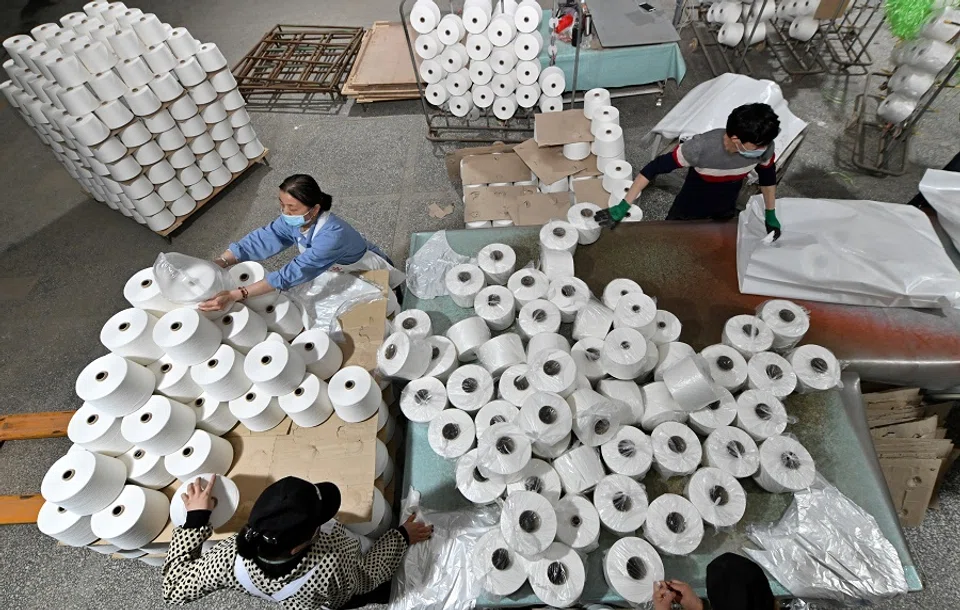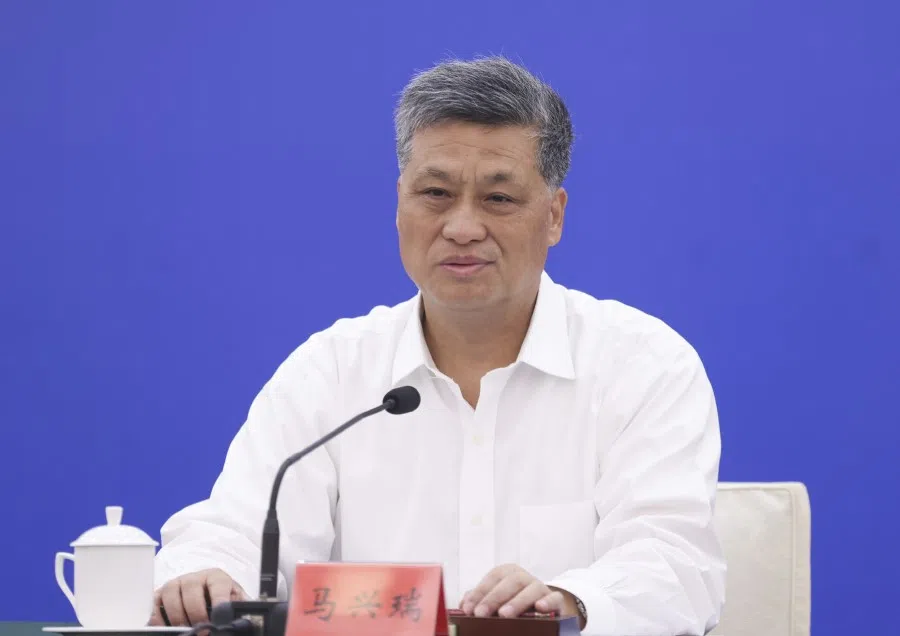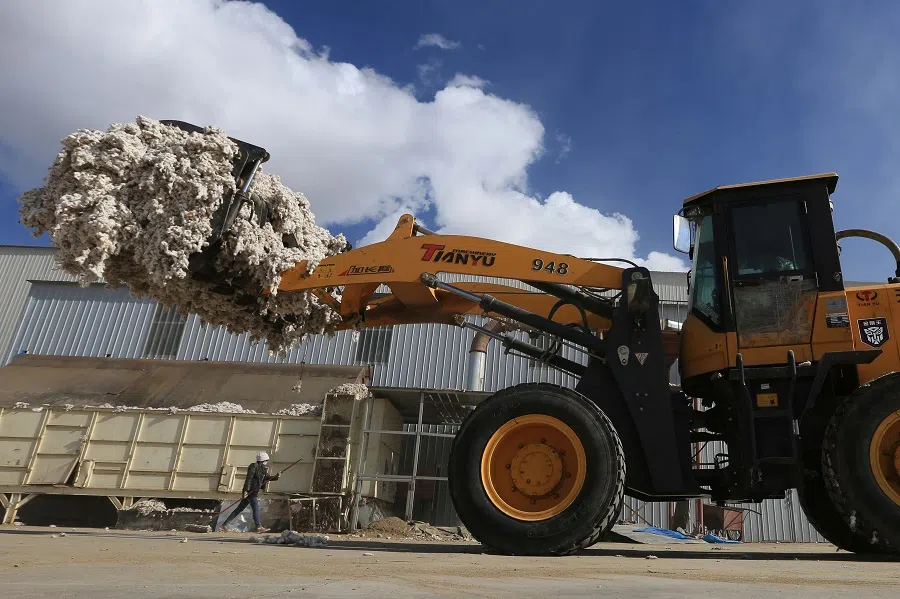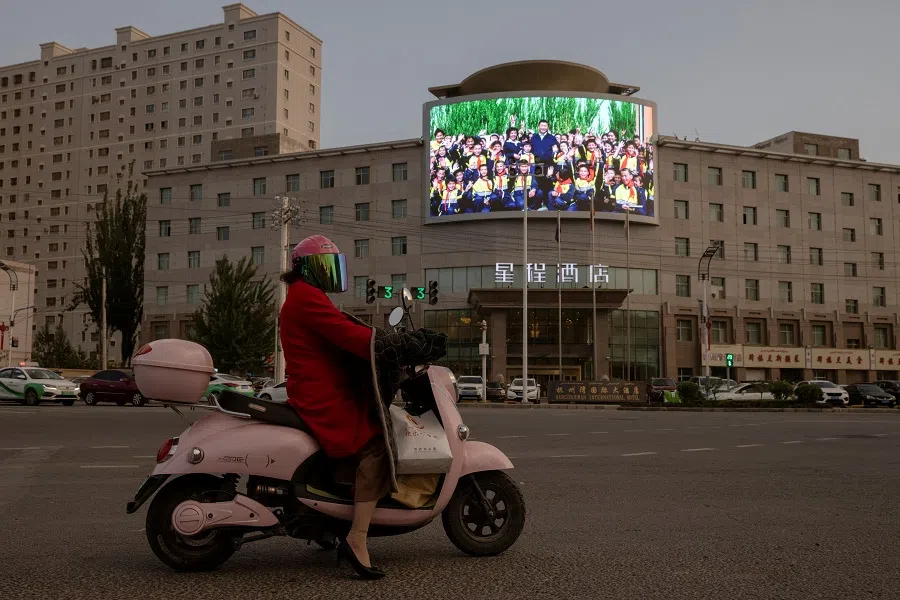Does a leadership change in troubled Xinjiang signal a new direction?
Guangdong governor Ma Xingrui has been appointed the next Xinjiang party secretary, replacing Politburo member Chen Quanguo, who has implemented tough security-related measures in Xinjiang in his time. Does this signal a fresh direction for Xinjiang? How will Ma lead efforts to promote high-quality development in Xinjiang while maintaining social stability and give all people of Xinjiang a sense of ownership and belonging?

Guangdong governor Ma Xingrui taking over from Politburo member Chen Quanguo as Xinjiang party secretary marks a fresh period for the region that has been at the forefront of the tussle between China and the US.
Ma did much for China's aerospace industry, and is known as the "young marshal of the aerospace industry" (航天少帅). He has done very well professionally - at 32, he was awarded by the State Education Commission (SEC) for outstanding contributions as a Chinese doctorate holder; at 35, he was selected for the SEC's "Trans-Century Training Program Foundation for the Talents" (跨世纪优秀人才计划); at 36, he was among those who received the top prize in the national "million talents project" (百千万人才工程); at 37, he was voted among the young and middle-aged experts with outstanding contributions. He has won two second prizes at the national level for improvements in scientific technology (国家科学技术进步二等奖); one second prize at the national level for achievements in teaching (国家级教学成果二等奖); three first prizes for national defence technology (国防科学技术一等奖); and six second prizes at the ministry level for improvements in scientific technology (部级科学技术进步二等奖).
Ma can only work with his foreign affairs and propaganda departments to attenuate outsiders' misgivings over Xinjiang but he cannot change the external hostility which affects Xinjiang's economic development.
Ma valued for political acumen and efficiency
Ma also has rich experience as an official. In 2013, from being vice-minister of industry and information technology, he was transferred to Guangdong, where he served as deputy party secretary of Guangdong, secretary of the political and legal affairs commission of Guangdong, Shenzhen party secretary and most recently, the governor of Guangdong.

In Guangdong - China's powerhouse province - Ma built up a wealth of political experience, giving an impression of having a quick mind, daring to innovate, knowing economics, and being good at governance. Some online comments have riffed on Ma's surname to come up with a nickname "Ma Shang Ban" (马上办, meaning to get something done immediately), showing that he moves fast and values efficiency.
The most crucial part of this is revitalising Xinjiang's economy and improving the lives of people in Xinjiang, and encouraging the minorities in Xinjiang to integrate more into the "greater Chinese family".
Ma was previously a member of the special committee of the State Council and the Central Military Commission and a member of the State Council's leading group for revitalising Northeast China and other old industrial bases, and is good at regional planning and economic revitalisation. Ma is no stranger to Xinjiang; during his term as Guangdong governor, he was in charge of Guangdong's aid to Xinjiang. In October 2020, he led a Guangdong party delegation on a trip to Kashgar in Xinjiang, where they discussed Guangdong's "pairing assistance" aid to Xinjiang under the 14th Five-Year Plan.
Ma started as a technical officer, and has no experience working with big names in the party, which some might see as a drawback. But today, with China's top levels emphasising selecting and using people from everywhere, a senior official like Ma would be accepted by various groups. His appointment as Xinjiang's top person is a firm "entrance ticket" to the next Politburo following the 20th Party Congress next year.
Ma's main challenge in leading Xinjiang is continuing the strategy set by China's top leaders of stabilising and governing Xinjiang, and resisting sanctions on Xinjiang by the US and other Western countries. The most crucial part of this is revitalising Xinjiang's economy and improving the lives of people in Xinjiang, and encouraging the minorities in Xinjiang to integrate more into the "greater Chinese family".

The riots that broke out on 5 July 2009 in Urumqi and elsewhere in Xinjiang was a turning point in governing Xinjiang. Over the past 12 years, Xinjiang has had three people in charge - Wang Lequan with his "iron fist" governance, Zhang Chunxian with his "soft governance", and Chen Quanguo with his approach of hitting the source and breaking up the "three evil forces" of terrorism, extremism and separatism.
...southern Xinjiang's Kashgar could be developed into one of China's new special economic zones...
Prospect for focus on Xinjiang's economy, less on terror threat
The Xinjiang Ma will face is not the same one a decade ago when violent riots broke out and stability took precedence over everything else. Under Chen's strategy of targeting the source of the problem and establishing a tight mechanism for guarding against the three evil forces, Xinjiang has not had another major violent incident in nearly five years. With Chen and other Xinjiang officials harshly criticised and sanctioned by Western public opinion and the US government, it is inevitable that Ma would be confronted by some of the flak against Chen after he takes office. However, Xinjiang's stability also provides impetus for Ma to shift his focus to economic development.
US President Joe Biden's recent signing of the Uyghur Forced Labor Prevention Act suggests that Xinjiang exports to the US and other Western countries will face heavy restrictions. Looking at the big picture, the US and the West's accusations and sanctions against Xinjiang are issues that China needs to deal with at the national level - Ma can only work with his foreign affairs and propaganda departments to attenuate outsiders' misgivings over Xinjiang but he cannot change the external hostility which affects Xinjiang's economic development.

In staving off Western sanctions however, Chinese higher-ups will certainly provide Xinjiang with more resources and to proceed with various economic development policies. For example, as Xinjiang stabilises, southern Xinjiang's Kashgar could be developed into one of China's new special economic zones, thereby giving a boost to Xinjiang's economic development. Having once held office as Shenzhen party secretary, Ma is somewhat of an expert in building special economic zones, and is well-placed to make Kashgar a new star in the opening up of China's border cities and a bright spot in Xinjiang's economy.
Improving quality of life amid stability
Last September, the Chinese Communist Party held its third central symposium on work related to Xinjiang during which Chinese President Xi Jinping urged the entire party to make the implementation of the party's Xinjiang policies a "political task". He also proposed "law-based governance and long-term efforts to develop Xinjiang into a region that is united, harmonious, prosperous, and culturally advanced, with healthy ecosystems and people living and working in contentment."
Compared to the second central symposium on work related to Xinjiang held in 2014, last year's symposium added the concept of the region being "culturally advanced" and "people living and working in contentment". It seems that using economic development to improve and enrich the lives of Xinjiang people has become a priority and mantra in the official governance of Xinjiang and also Ma's main policy direction for the next few years.

At a conference on Xinjiang leadership cadres on 25 December, Ma said that he would promote the long-term stability of Xinjiang society and never allow its hard-won stability to backslide. At the same time, he would also promote the high-quality development of Xinjiang's economy in a people-centric manner to meet the people's needs for a better life.
With ongoing attacks on Xinjiang by the US and other Western countries, it is unlikely that the overall situation in Xinjiang can be reversed overnight. Ma's immediate challenge would be promoting high-quality development in Xinjiang while providing all ethnic groups with a larger sense of achievement and hope, and pave the way for long-term stability and social progress in Xinjiang. At the same time, how Ma plans to protect the unique customs and cultural characteristics of ethnic minorities in western China whilst developing the economy is also something that everyone will be closely watching.
Related: Who's who among the new CPC leadership: Enroute to CPC's 20th Party Congress | The great reshuffle: How China is changing up its provincial leaders ahead of the 20th Party Congress in 2022 | The Xinjiang problem: Can Washington be the defender of all? | BBC vs CCTV's Xinjiang: Which is the real Xinjiang? | The fight that never ends: Why are China and the West now fighting over Xinjiang cotton? | Is there a genocide in Xinjiang?


![[Big read] When the Arctic opens, what happens to Singapore?](https://cassette.sphdigital.com.sg/image/thinkchina/da65edebca34645c711c55e83e9877109b3c53847ebb1305573974651df1d13a)


